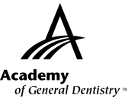|
Exercise No. 359
Subject Code: 016
Pharmacotherapeutics
The 15 questions for this exercise are based on the article, “Perspective of cardiologists on the continuation or discontinuation of antiplatelet therapy before dental treatment: a questionnaire-based study”, on pages 64-68. This exercise was developed by Merlin Ohmer, DDS, FAGD, in association with the General Dentistry Self-Instruction committee.
|
Reading the article and successfully completing this exercise will enable you to understand:
- the clinical implications of antiplatelet therapy;
- when and how to consult the patient’s cardiologist; and
- the effects of antiplatelet therapy on dental patients.
|

